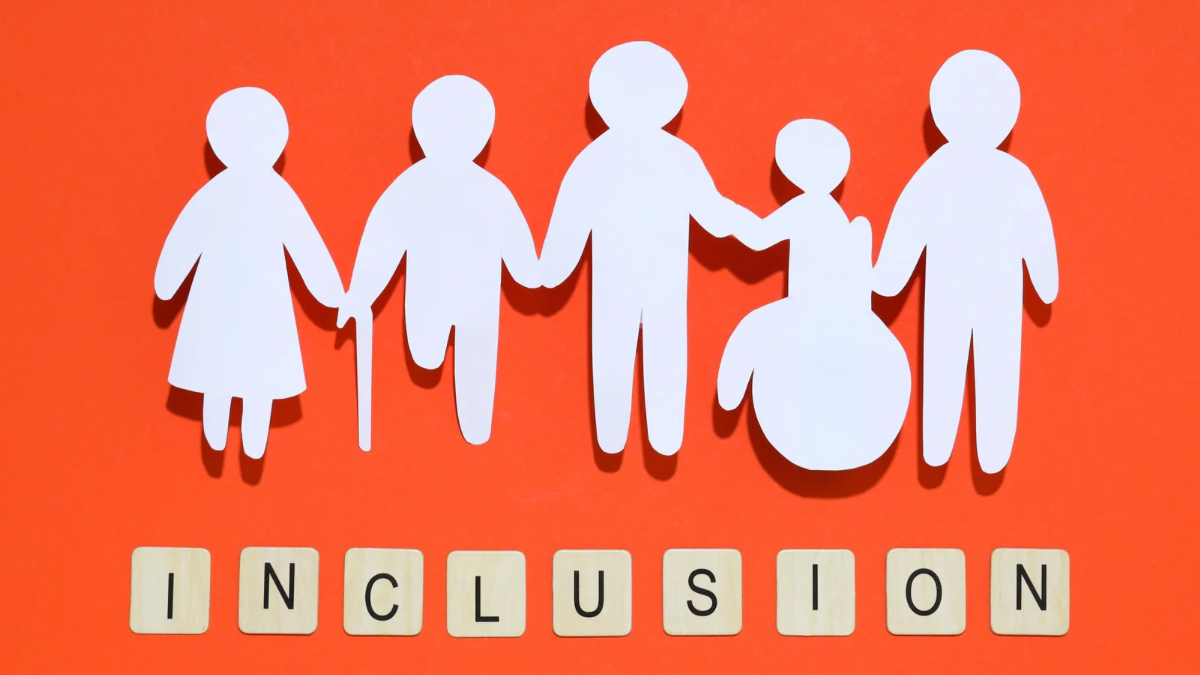
The Garrick Club and “What All the Fuss Is About” – Hidden Networking, Entrenched Misogyny and Secret Politics
April 30, 2024
Breaking the Silence on Mental Health
May 2, 2024By Isha Amir.
Reading time: four minutes
I work at my local magistrate’s court and I have seen first-hand how inaccessible courts can be for people with disabilities. From inadequate wheelchair ramps to poorly designed courtrooms lacking accommodations for individuals with sensory impairments, the barriers faced by those with disabilities in accessing the legal system are glaringly evident. Yet, these challenges extend far beyond the physical infrastructure of our courts.
In the broader legal profession, the question arises: Is it truly fit for people with disabilities?
This article will explore the accessibility of the legal profession, shedding light on the hurdles faced by individuals with disabilities and the imperative for change in fostering a more inclusive legal landscape.
Why is it important?
In an article published by the Bar Council titled “Inaccessible Courts,” the stark reality of the challenges faced by individuals with disabilities in accessing the legal system is laid bare. Conducting surveys across numerous magistrates’ courts, the findings reveal a distressing picture of accessibility failings, with serious inadequacies present in more than three-quarters of the courts surveyed. This extends beyond physical barriers to include insufficient provisions for disabled magistrates, hindering their ability to fulfil their roles effectively.
Mark Henderson, a barrister, hit the nail on the head when he said that; being able to get into court without any barriers is super important for getting fair access to justice. Unfortunately, this isn’t always the case, even though laws like the Equality Act 2010 say it should be. But here’s the kicker: it’s not just about fairness; it’s also about making the legal system work better. When courts aren’t accessible, it hinders the whole system and starts a domino effect. Cases take longer, creating a backlog, which might lead to conplaints and protests, making it harder for everyone involved – not just people with disabilities.
What can be done?
To address the accessibility issues plaguing the legal profession, organisations like the Disabled Solicitors Network (DSN) are playing a crucial role in promoting equal opportunities for individuals with disabilities. The DSN champions the cause of inclusivity within the legal sector, advocating for the full participation and advancement of disabled solicitors. By leveraging their collective experiences and expertise, members of the DSN provide invaluable support to aspiring solicitors and colleagues navigating the challenges of the legal profession.
Read this article to find out more about inclusivity for the D/deaf community: https://thestudentlawyer.com/2024/03/24/legal-inclusivity-for-the-d-deaf-community/
Considering their commitment to fostering a more inclusive legal landscape, the DSN’s initiatives serve as a beacon of hope for individuals with disabilities seeking to pursue careers in law. Through mentorship programmes, inclusive networking opportunities, and advocacy efforts, the DSN empowers its members to thrive in an environment that may have previously seemed inaccessible.
The DSN’s consultation, scheduled until May 24th, presents a unique opportunity for stakeholders to contribute their perspectives and insights on how to further advance accessibility within the legal profession. By actively engaging with members and soliciting feedback, the DSN ensures that its initiatives remain responsive to the evolving needs of the community it serves.
Read this article to find out more about the growth of disabled lawyers and inspiring barristers to watch: https://thestudentlawyer.com/2024/01/30/breaking-barriers-the-rise-of-disabled-lawyers/
Recommended steps
In addition to the commendable efforts of organisations like the DSN, there are several steps that can be taken to increase accessibility within the legal profession.
First and foremost, there needs to be a concerted effort to address physical barriers in court buildings and legal workplaces. This includes ensuring the availability of:
- wheelchair ramps;
- accessible restroom facilities; and
- accommodations for individuals with sensory impairments.
Moreover, greater emphasis should be placed on providing comprehensive training and resources to legal professionals on disability rights and accommodations. By raising awareness and fostering a culture of inclusion, the legal profession can become more welcoming and supportive of individuals with disabilities at all stages of their careers.
Furthermore, proactive measures should be implemented to promote diversity and representation within the legal profession, including targeted recruitment efforts and the implementation of inclusive policies and practices. By prioritising accessibility and inclusivity, the legal profession can truly uphold the principles of justice and equality for all.





